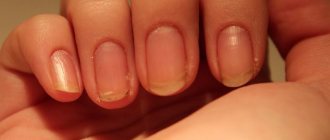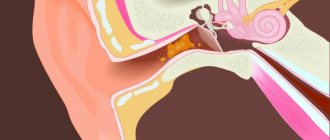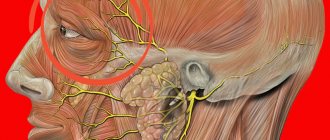Problem Definition
Jet lag is a “switching disease” or “time zone change disease”.
This condition is completely functionally reversible for a healthy person, and develops as a result of an imbalance in a person's circadian rhythm after a rapid change in time zone. And this is only possible during a long plane flight. Therefore, the name of the syndrome consists of two “technical terms”: jet (that is, a jet airliner with a high flight speed) and lag, that is, “delay”
This condition is also called “desynchronosis,” and this name more accurately reflects the importance of the time factor than the generally accepted and, in fact, “commercial” term, when maladjustment is called “lag” and is tied to the name of the vehicle
It is interesting that the duration of the flight may not at all cause unpleasant manifestations of maladjustment, for example, if the movement occurs along the meridian, that is, within the same time zone. For example, traveling from Salekhard to the resorts of Thailand, despite a transfer (in Novosibirsk), does not lead to consequences, since the person got up in the morning in Salekhard and went to bed in the evening in Bangkok at the same usual time.
The second curious fact, but quite logically justified, is that crossing the date line and moving the calendar to a day does not lead to increased signs of maladaptation, since the body “doesn’t care” whether today is now or yesterday. The main thing is that he is used to eating and sleeping within the division of hours per day, but it does not matter what day it is.
In the same case, if a change in time zone occurs, then this condition can be very pronounced, and even lead to an exacerbation of chronic diseases. The most severe is complete cross-jet lag, in which time changes by 12 hours relative to the usual one, and, on top of that, a person ends up from a snowy European winter in the humid subtropics of the Amazon. It is precisely such “travels,” especially those carried out for the first time, that can do a bad job. How does jet lag occur and what symptoms may occur?
How to deal with jet lag
Rules for preventing desynchrony:
- If you are planning a flight, gradually shift your bedtime a few days in advance, adjusting to the time zone at your destination. If you're traveling east, go to bed earlier; if you're flying west, go to bed later.
- It is advisable to choose your flight time so that your arrival is before 22:00 local time.
- Please set your watch to the time zone at your destination in advance of boarding. You shouldn't sleep on the plane, especially if you arrive at your destination late in the evening. By doing this, you will push back the normal time of falling asleep as much as possible, go to bed later, and wake up exhausted in the morning.
- On the first day after arrival, try to spend more time in the fresh air, optimally in sunny places. This will increase melanin production and help you fall asleep peacefully in the evening.
- Light sports are acceptable, but only in the first half of the day.
- Skip naps after you arrive. As a last resort, limit its duration to a maximum of two hours.
- In the evening, get ready for bed - eliminate sources of noise and light if possible, take a warm bath.
- Be sure to stop smoking and drinking alcohol immediately before bed, and do not drink energy drinks in order to quickly adapt to the new time zone.
There are several ways to combat jetlag. The drug therapy method is Melaxen. These tablets for desynchrony of plant origin belong to the group of adaptogenic agents, regulate the cycle of sleep and wakefulness, and normalize circadian rhythms. When taken correctly, falling asleep speeds up, sleep quality improves, and the number of awakenings at night decreases.
The average person’s body is quite capable of coping with jet lag on its own. Moreover, the struggle lies not so much in the competent selection of medications, but in proper preparation for a long flight and switching to work on the night shift. Normalization of work and rest schedules, lifestyle, giving up bad habits, a properly balanced diet, going to bed at the same time - these are the basic principles that will help you adjust to a sudden change in time zone and survive it without problems.
Causes
The main reason for the development of this syndrome is traveling with a change in time zones. Moreover, if you move within your time zone, then this syndrome does not manifest itself in any way (possibly only the formation of fatigue as a result of prolonged dehydration, also caused by the flight).
In addition to travel, jet lag can be caused by working at night, which at first leads to a discrepancy between a person’s biological clock and the usual one.
Often, people who go to bed early on weekdays and also get up early due to the need to go to work, on weekends dramatically change their usual sleep-wake schedule, and as a result go to bed several hours later and also get up later. This category of people (and this is more than 50% of the world's population) can also experience Jetlag syndrome, but in this case it is called social Jetlag (Weekend Jetlag or post-vacation Jetlag).
Interesting Facts
- The suprachiasmatic nucleus, an area in the hypothalamus, is responsible for circadian rhythms. The degree of manifestation of jet lag and its duration depend on the restructuring of neurons in this area.
- A person's state of wakefulness depends on light. Special cells in the retina of the eye catch light and send a signal to the suprachiasmatic nucleus, which triggers the awakening mechanism. Scientists are developing special drops that will allow them to influence these processes. Such drops will help overcome some symptoms of desynchrony.
There is a phenomenon of social jetlag. Rhythm mismatch can occur due to a sudden change in the usual schedule and daily routine. So, most people live in a workday and weekend regime. If, after many years of using the same schedule, there is a sudden change in it, jet lag may appear. The social syndrome is also recorded during the transition from summer to winter time and vice versa.
Drugs
In some cases, jet lag syndrome can be successfully stopped with the help of:
- tablets (Melaritm);
- special nasal sprays;
- stimulants.
Pills
To alleviate symptoms associated with circadian rhythm disturbances, products containing melatonin are used:
- Circadin;
- Mälarena;
- Melaxen;
- Melarithm;
- Sonnovan.
A surge of this hormone in the brain signals the body that it is time to go to sleep. Additional dosages of this hormone during flights will help normalize biorhythms and quickly enter a state where the body is ready for sleep. Such drugs are taken 1-2 hours before the expected bedtime in a new place.
Some experts recommend starting to take melatonin-containing medications several hours or days before your expected flight. However, taking melatonin for a long time without consulting a doctor is prohibited.
Eye drops
Research conducted by scientists in 2020 helped identify a special hormone produced by eye cells - vasopressin, which, when released into the brain, helps stabilize biological rhythms. Therefore, it is possible that in the near future eye drops will replace medications to help cope with desynchrony.
Nasal saline solution
When the nasopharynx is cleansed of dust, microbes and irrigated, the entire immune system is strengthened, which has a positive effect on the general condition of the body and helps to quickly get rid of the unpleasant symptoms that accompany flights.
Can I take stimulants?
Stimulants should be used with extreme caution. The world's leading organizations in the United States and European countries for product quality supervision deny the data of the developers of such drugs about their effectiveness in combating jet lag
These drugs increase alertness, but do not relieve malaise, and also cause a number of side effects and addiction.
However, some people take such medications (Modafinil, Armodafinil) without even consulting a doctor, which can be very dangerous, since these drugs are used to treat very serious conditions and disorders (schizophrenia, narcolepsy).
How science defeated jet lag or “Oh, Melatonin”
Canadian scientists once discovered that people who constantly do not get enough sleep at night and are forced to stay awake during the time required for sound sleep age faster and more often than others have a worn-out cardiovascular system. To help poor night owls, doctors have invented an artificial biorhythm switch - melatonin tablets.
This hormone speeds up falling asleep, then the person gets his normal sleep pattern and switches his sleep pattern to the desired one, without experiencing side effects or disturbances in the body. At the same time, it turned out that in addition to its main function, melatonin prolongs life and strengthens the immune system.
Important! Despite the fact that melatonin is more classified as a nutritional supplement than a serious medicine, it has a number of contraindications, and before taking it, you should consult with your doctor.
Indications
Melatonin is used:
- To normalize sleep patterns.
- With jetlag.
- To improve immunity.
- As an antioxidant.
- As a prevention of oncology.
- To stabilize pressure.
- As a means for psychological normalization.
Jetlag - definition of the term
Jet lag is a syndrome of jet lag, when the usual biological rhythm of people does not coincide with the lifestyle of the final destination of travel. Translated from English, the term sounds like “jet plane” and “lag behind.” A sharp time difference after a flight has a negative impact on the general well-being of the passenger. Crossing time zones affects the synchronization of the physiological clock with the time at the destination. It is worth noting that distance does not play a significant role. It all depends on the number of time zones crossed.
For example, a person flew out of London at 9 am. His flight to New York lasted about 7 hours. At the same time, 5 time zones were crossed. Consequently, in America the passenger will be at 16:00, which for the body means the time when it can rest after work in the usual rhythm of life. Literally after a few hours, a person should, in theory, go to sleep. In fact, after the flight, he sees a clear day in New York and people bustling around. These signals do not correspond to a person’s usual biological clock and his senses, which leads to desynchronosis. The body does not have time to readjust and for some time it works as if it had not crossed time zones. As a result, he feels unwell and his sleep is disturbed.
The problem of jet lag can occur for people during the transition to daylight saving time, and it also applies to those who often work night shifts.
Attention! People of completely different ages can suffer from jet lag, but the elderly are most susceptible to this problem. Their adaptation and restructuring of the internal biological clock is much slower than in young people.
It is important to identify a similar problem in time and begin timely treatment.
Fortunately, there are special pills used for jet lag, and many methods, advice from doctors, with which you can quickly help the body
It is important to identify a similar problem in time and begin timely treatment. Fortunately, there are special pills used for jet lag, and many methods, advice from doctors, with which you can quickly help the body
How to overcome it?
The fight against jet lag is a very common phenomenon among air travelers, to combat which they have developed a lot of methods: from fairly simple and generally available (correct daily routine, healthy diet) to very serious ones (taking various, including hormonal, medications ). Many of them will work well for one person but be uncomfortable for another. Therefore, you should choose options for combating jetlag, focusing primarily on yourself. Let's look at the most basic ones.
Healthy regime. A person who leads a healthy lifestyle, eats good food, plays sports and gets enough rest tolerates jet lag much better than his antipodes.
Drink water. Before and during the trip, it is better to drink only water or juices, since coffee, tea and alcohol can cause dehydration, and, coupled with jet lag, poor health.
Prepare in advance. If it is important to you how you will feel upon arrival, then you can sacrifice your usual schedule now and start living according to the time zone where you plan to go.
Get medical advice. Are health problems bothering you? Then, before the flight, you just need to visit a doctor and get a consultation from him. This is especially important if you have any cardiovascular disease or diabetes
The doctor will be able to select the necessary dosages of medications for you based on the fact that you will be traveling by plane. (High altitude is characterized by an altered course of chemical reactions, which is expressed in the enhanced effect of almost all drugs, including alcohol).
Provide comfort. In order for jet lag to have the least impact on you, you simply need to be in a relaxed state and in a good mood during the flight. Stock up on your favorite books, movies, music or anything else that can keep you entertained during the flight. There is nothing wrong with taking comfortable loungewear with you on the flight. In addition, such clothing will create the necessary comfort and to some extent protect against circulatory disorders.
We hope these simple tips will help you deal with jet lag. Good luck on your flight!
How to minimize jet lag if there is a last minute tour tomorrow?
Jet lag is more easily tolerated on vacation than during business trips. But this is little consolation: it will still be stormy for a couple of days. It's good to have a week or two to prepare for jet lag. And if you bought a last-minute tour and are flying tomorrow, then the body’s best helper is sleep. Get a good night's sleep the night before and the effects of jet lag will be less noticeable.
During the flight, follow these tips:
- As soon as you take off, set your wristwatch to the time of the time zone you are flying to. This will help you get used to the new schedule faster.
- Do not drink alcohol and coffee - this causes dehydration, which leads to all the symptoms of jet lag.
- If you arrive early in the morning or at night, try to get enough sleep on the plane. Bring noise-cancelling headphones, a sleep mask, and sleeping pills (only with a doctor's prescription).
- If you arrive in the afternoon or evening, you should not sleep on the plane - this will further confuse your body, which will have to go to bed again in a few hours.
Read the blog:
Flying without worries - how to fly comfortably, without stress and fear
What is jet lag?
Traveling by air from one time zone to another disrupts the normal rhythm of the human body. This is due to the fact that long flights cause hormonal imbalances.
Its high content provokes the development of stomach ulcers, and also harms the brain and nerve cells, impairing memory and attention. Jet lag syndrome is a natural protective reaction of the body that occurs when changing time zones
At the same time, vital circadian rhythms (the body’s internal clock), which are responsible for alternating wakefulness and sleep, are disrupted.
Jet lag syndrome is a natural protective reaction of the body that occurs when changing time zones. At the same time, vital circadian rhythms (the body’s internal clock), which are responsible for alternating wakefulness and sleep, are disrupted.
When crossing, for example, the Atlantic Ocean on a ship, the occurrence of jet lag can be avoided, since the body gradually adjusts to different clock rhythms during the voyage. When traveling by air, the human body experiences stress.
All this causes malaise, as a result there is an imbalance in the functioning of all internal organs, accompanied by physical and psychological discomfort (insomnia, lethargy, intestinal upset). This condition, although unpleasant, is still temporary.
Gradually, a person manages to get into a rut and adapt to new conditions, but this does not happen immediately, which is why a similar syndrome is called “jet lag,” consisting of 2 English words: jet - airplane, lag - delay.
How dangerous is this?
Despite the fact that jet lag is not classified as a disease that can seriously threaten health, the so-called “cumulative effect” can work, which will give impetus to the development of serious illnesses.
Scientists have proven that long-term disruption of normal sleep leads to disruption of normal processes of the nervous system and, accordingly, the psyche. If symptoms are expressed in the digestive system, problems with internal organs can occur.
Important! A one-time desynchronization when you go on vacation will not do any harm, but if flights are related to work and are repeated with enviable regularity, it is worth taking preventive and preventative measures!
How to deal with jet lag?
Medicines are the main and decisive means of combating such ailments. One of the helpers in this case is the drug Melaxen, which regulates circadian rhythms and helps fight obvious signs of jet lag.
But, before buying and using this drug, you should consult with your doctor, who will consider all contraindications and, if necessary, give important recommendations.
As for the dosage of these anti-jet lag tablets, the issue is decided by the doctor on an individual basis. Usually, taking one tablet for 3-5 days is enough.
Another assistant in the fight against ailments associated with jet lag or social jetlag is the neurohormone “”. It has corrective properties and acts as a mild sleeping pill.
- Drinking coffee and alcoholic beverages shortly before, during and after the flight is strictly contraindicated. You should not overload your nervous system;
- It is not advisable to refuse to eat; a hunger strike will not bring anything good. But overeating is strictly contraindicated;
- The risk of dehydration can be avoided by drinking enough fluids. Moreover, you should give preference to plain water rather than fruit juices. By the way, tomato juice is also not the best option; it is advisable to temporarily abandon it.
It is important to get a good night's sleep before flying. Don't listen to the advice of not sleeping at all in order to fall asleep faster on board
Preliminary rest should be complete. The use of sleeping pills should also be avoided. They thicken the blood, which is extremely undesirable during flight. In addition, such drugs can worsen a person's disorientation.
If you have a transplant
In order to save money on flights, some passengers refuse direct flights and get to their destination in several stages, with transfers. Many airlines are meeting such people by working to create convenient transport hubs and giving them the opportunity to get from one point to several at once.
If you have to take such a flight with transfers, then you shouldn’t sit around waiting for the next flight without benefit for yourself. Following some tips will help you avoid jetlag:
- In this case, warming up for legs that are tired from hours of flights is very important;
- You can eat if you want. It’s only better if these are not “fast carbohydrates”;
- it is advisable to refrain from large amounts of glucose, which for some reason you always really want in such situations;
- food should be light, healthy and quickly digestible.
What to do during the trip?
There are tips for people suffering from jet lag. If you follow them, you can quickly cope with ailments:
It is advisable to spend the first day after arrival outside. Thanks to the positive influence of sunlight, the body will be able to quickly adapt to the new rhythm. Staying indoors for a long time only worsens the symptoms of jet lag; movement has a positive effect on a person
It is worth paying attention to sports. With its help, the body is invigorated and its internal clock is quickly reconfigured; Don't exercise close to bedtime
This may cause even greater disruption of the circadian cycle; It is not advisable to sleep during the daytime, this is fraught with even greater disruption of the rhythm. If you are still tired and want to rest, you can take a nap, but no more than 2 hours. A set alarm clock will help you avoid oversleeping; the nervous system should not suffer from unnecessary noise and light. Earplugs and an eye mask will help with this. Thanks to restful sleep, you will be able to cope with the problem of biological rhythm disturbances much faster; A visit to the swimming pool is a great way to cope with jet lag. Thanks to this, the muscles become toned faster, fatigue and tension are relieved; Instead of coffee and alcoholic drinks, it is better to calm the excitable nervous system with the help of herbal teas. You will get a restful night's sleep if you first drink chamomile and valerian. The aroma of lavender also has a positive effect on the nerves; if the planned trip lasts only a couple of days, there is no need to rebuild your body. It is better to eat and stay awake at the time to which a person is accustomed.
As it turns out, jedlag is hard to protect yourself from. For each person, changing time zones occurs individually. But the right approach to solving this issue and following all the doctors’ recommendations help to significantly improve the condition and reduce the negative symptoms of jet lag to a minimum.
On the first day after arrival
After arrival, people have two opposing desires: some want to go to bed and get some sleep, others want to run to celebrate their arrival. Both options are incorrect. If it’s too early to go to bed according to local time, then you shouldn’t go to bed. Also, in the first days, try to avoid junk food, alcohol, coffee and snacks. Because you can eat fatty and unhealthy food during the day, and your body will still think that it is night - and respond with indigestion and deterioration in the quality of sleep.
A great way to quickly adapt to new times is to use lighting. Internal biorhythms are more easily synchronized if you surround yourself with complete darkness at night and bright light in the morning. Jet Lag Advisor will help you calculate the correct time for darkness and light. Here you can find out at what times it is better to avoid bright lighting, and at what times - vice versa. In the form you need to enter when you usually wake up at home, the current time in the country you are in and indicate what time it is in Russia.
Based on the data, the service will give you advice like: avoid the sun from 9.00 to 11.30, be in the light from 17.00 to 18.00. The service is in English, but a simple Google translator will help you understand the advice. If you strictly follow, you will overcome the consequences of jet lag on the very first day.
By the way, maybe you have your own recipes for combating jetlag? Tell us about them in Facebook and VKontakte groups!
Etiology of jet lag
A traveler who has changed several time zones during a flight experiences changes in daylight and night.
There is a divergence between the concept of the internal clock and the time zone at the destination. This leads to disruption of the usual rhythm of life, consisting of eating, sleeping, melatonin production and even body temperature.
After the flight, all the listed points change and do not match. The body is not able to quickly adjust to a new rhythm, which causes desynchrony.
Unpleasant symptoms are caused not by the time spent moving, but by the time difference between destinations. For example, a passenger can fly 10 hours from Europe to one of the countries of South Africa. They are located on the same meridian, so such a flight should not be complicated by jet lag.
A different situation will occur if a person flies from Russia to Spain. The flight duration is 5 hours, which is half as long as the previous case. But the condition of a passenger traveling between Russia and Spain may be significantly worse due to the difference in several time zones.
Thanks to long-term research, scientists have found that many people find it relatively easier to fly from east to west than from west to east.
People who, due to their professional activities, have to make frequent flights can observe a chronic course of jet lag.
Social jetlag
There is such a thing as social jetlag, the occurrence of which is not associated with flights.
The symptoms of this phenomenon are practically no different from ordinary jet lag, but the reasons for its occurrence are different. These include:
- shift work schedule;
- processing at home related to homework assignments, upcoming exams, etc.;
- clock change;
- long rest, changing the adopted regime.
In medical practice, this is called sleep-wake disorder. Nowadays, many people are susceptible to social jetlag without even realizing it. Accordingly, they do not accept any methods to combat this, which is fraught with serious complications in the future.
It’s worth listening to your body and taking action immediately in case of poor quality sleep. If a person tosses and turns for a long time and cannot sleep, he is tormented by nightmares in his sleep, he often wakes up at night, and is depressed in the morning - this is an alarm bell from the body and a reason to think about his health.
In such situations, it is very important to establish a sleep-wake routine, try to fall asleep and wake up at the same time. If this method is not effective, doctors recommend drug treatment.
Why does jet lag occur?
After crossing several time zones at once, the synchronization of the internal biological clock in the human body is disrupted. the change in time zones that matters , and not the flight range . For example, experienced travelers claim that a ten-hour flight from England to South Africa will not cause symptoms of desynchrony, while a five-hour flight from the east coast of America to the west will most likely cause jet lag.
What is an internal biological clock ? According to research by American scientists, there are two such clocks in our body. Physically, they represent two groups of nerve cells in the brain, and one group receives information about the change of day and night directly through the visual system, and is associated with the deep sleep phase, and the other group is insensitive to changes in light conditions, and is directly associated with the REM phase sleep. Usually these two groups work synchronously, and the stages of sleep occur sequentially. Changing the light regime quickly “adjusts the hands” of the first clock of this pair, but the second one continues to lag or rush relative to the first one, which provides us with all the “delights” of jet lag.
It has been noticed that long-distance flights between the same points are not perceived unambiguously by the human body. According to research, most people experience flights from west to east worse. The reason is probably that for most people, sleeping longer is easier than waking up earlier. For example, the flight Moscow-Khabarovsk is perceived by the body much more difficult than the flight Khabarovsk-Moscow.
How to fight
The time for recovery is taken as a day for 1-1.5 time zones, depending on the direction of the “translation of the arrows”. In order not to spend a business trip or vacation bringing yourself from the “nervous-sleepy vegetable” state to normal, it is worth knowing about some measures to prevent and alleviate jet lag:
- A few days before the flight, ensure yourself a regime of maximum vigor: walking in the open air, loading yourself with activities. Do not rest more than necessary, but rather try to increase your waking hours
- Sleeping in flight. Put away your player, tablet or book for a while. Having slept through the entire flight, there is a chance that the body will not have a severe malfunction upon arrival. You should take care of earplugs, a special pillow under your head or shoulder, and a sleep mask in advance. A thin blanket, which, unlike aircraft equipment, you can be sure of its cleanliness will not go amiss
- In order not to aggravate jetlag with the state of “road fatigue”, which is caused by dehydration of the body, try to drink more clean water (it is better to avoid coffee, alcohol and carbonated drinks)
- Try to choose flights that will get you to your destination during daylight hours. In sunlight, the body adapts faster.
- Take aspirin on the plane. It thins the blood and prevents blood clots, the risk of which increases on long flights
- Set a rhythm for the body in advance through food. By updating your food intake at the time of the desired awakening from sleep, after a 12-hour break, you will start a “new countdown” of the day.
How to prevent jet lag?
Below are tips from people who have to fly frequently and for long periods of time. By sticking to them, you can avoid jet lag.
When you fly to the West, have a good snack on meat products. They won't let you sleep. And if you have a flight towards the East, it is better to sleep at this time. Carbohydrate foods will promote sleep. Alcohol consumption significantly provokes the appearance of jet lag.
If you don’t want to arrive in a completely broken state and be out of life for several days, don’t drink alcohol. It is important to change your diet a few days before departure, and not the day before. In addition, after arrival it is also important to observe food restrictions
Eating too much food will put additional stress on the body, which already has a hard time. The advantage of restriction will be the gradual absorption of other foods by the intestines. This will make it possible to avoid digestive problems. During the flight, try to adjust to the time of the place you are flying to. For example, if it’s morning there, then tune in to being awake and having breakfast, and under no circumstances sleeping. If it is night, try to fall asleep or take a nap, put on a blindfold. By the way, at the very beginning of the flight, change your watch: set the time that is now at your destination. This technique psychologically prepares for proper synchronization.
To quickly get used to the new time zone, you need to change the clock hands at the beginning of the flight
- There are suggestions that the appearance of jet lag is facilitated by stagnation in the blood vessels. Prolonged restriction of movement deprives the body's tissues of oxygen and nutrition. Therefore, try to move around the cabin more often and make simple movements.
- You can try to completely avoid jet lag. To do this, a few days before departure, you need to shift your sleep and wake-up times an hour a day closer to the time you will be in. Thus, once you find yourself in a different time zone, you will be ready for changes.
Of course, each person will have their own way of dealing with jet lag. Use the advice of experienced “flyers” and let your vacation or work be carried out with maximum efficiency.
In the modern world, thanks to air travel, great opportunities for business and travel are opening up, and the importance of huge distances is practically erased. In just a few hours you can find yourself on another continent. Just 150 years ago it would have taken months to cover such a distance. But the human body is not adapted to such rapid changes, and more and more people are learning for themselves what jet lag is.
How to avoid jet lag if you have time to prepare
We recommend starting your preparation by planning your vacation, especially the first two days - they are the hardest. Try creating a sleep schedule through the jetlagrooster.com service - it helps you survive jet lag with minimal discomfort. The site automatically creates a sleep and wake plan, which you should stick to in the first days after your arrival. The service is in English, but you can figure it out.
Enter your flight details: departure city, arrival city, time, date - and receive individual recommendations. They were compiled by Jay Olson from the Department of Psychiatry at McGill University. He collaborates with athletes and travelers and helps overcome jet lag.
On the graph, yellow indicates the time that needs to be spent in the fresh air or at least with the lights on indoors. Gray squares represent the time you need to spend in the dark (in a hotel room with the curtains closed, wearing a sleep mask, or, in extreme cases, outside wearing dark glasses). Blue indicates the time suitable for sleep. Please note that the graph shows the time of departure country. Stick to this schedule while on vacation and jet lag will not affect your well-being.
1-2 days before the flight
- Try not to do anything that could make you feel worse, such as going too hard at the gym or celebrating the start of the holidays. Hangovers and excessive exercise can make jet lag worse.
- Start shifting your sleep schedule towards the time zone where you are planning to fly. If to the east, go to bed at 22.00 instead of 23.00, and get up at 6.00 instead of 7.00. If you have a trip to the west, on the contrary, live a couple of days according to the “night owl” schedule.
- Change your diet to spite all nutritionists: eat as little as possible. Breaks between meals should be 12-16 hours. This will make it easier for the body to adjust to a different daylight hours.
- If you have a week to spare, try the Argonne Anti-Jet-Lag Diet. With it, you will have to alternate “holiday” and “fast” days, drink coffee, cola and other caffeine-containing drinks at strictly designated hours.
Symptoms
The state of discomfort associated with jet lag can last several hours or several days. The duration of the syndrome is determined by the specific characteristics of the human body. Some people are not susceptible to jet lag. Some individuals take several hours to get used to, while many suffer from the disease for several days.
Jet lag is accompanied by the following symptoms:
- fatigue;
- insomnia;
- sleep disturbance;
- headache;
- loss of appetite;
- indigestion;
- disorientation;
- irritability;
- general discomfort;
- depression.
The duration and severity of jet lag depends on three factors:
- number of time zones crossed;
- directions - from west to east or vice versa;
- individual characteristics of the body.
According to statistics, people endure a flight from West to East much worse. When calculating the approximate duration of the syndrome, the ratio is taken - one time zone is equal to 24 hours of recovery. A shift of one or two time zones usually does not lead to negative consequences.
The intensity of the syndrome is not tied to the number of hours spent on board the plane during the flight. Jet lag does not occur when flying long distances from north to south or vice versa, since there is no change in time zones.
Videos on the topic
CHECK YOUR HEALTH:
Is there a feeling of aching in the joints and muscles?
Continue >>
Do you experience weakness, increased fatigue, or a feeling of weakness?
Continue >>
Do you have a headache or feel dizzy?
Continue >>
How's your appetite?
Continue >>
Do you have diarrhea (diarrhea)?
Feeling tired and exhausted after a flight? Or maybe a headache or nausea? This is jetlag, a syndrome that occurs when human biorhythms do not coincide with daily or geographical ones.
Literal translation: jet (jet) - reactive, lag (leg) - delay, lag, jetlag - desynchrony, desynchronosis, circadian rhythm disorder, jet lag. What is jet lag, how to deal with it? Let's try to figure it out.
Jet lag has an unusual name - jet lag.
Special Applications
With the advent of smartphones and other electronic devices, a large number of applications have emerged to make the life of the average person easier.
There are several types of mobile programs designed specifically to alleviate the symptoms of Jet Lag, these include:
JetLagApp is an information application that will tell you how to behave, what to eat and how to sleep to minimize the consequences of a flight.
Entrain - the application will help you prepare for your flight and avoid the unpleasant consequences associated with changing time zones.
How to deal with jet lag
Avoid common mistakes.
- There is no need to put yourself to sleep with alcohol, either on board the plane or upon arrival.
- Don't try to cheer yourself up by pumping yourself up with coffee.
These actions, although their goals are diametrically opposed, will lead to one result - dehydration of the body and even greater imbalance of the biological clock.
Take care of skin that is experiencing additional stress.
Before the trip
- 1
Avoid injections and peels two weeks before departure. If the procedures are only relaxing, nourishing and moisturizing, soft massage. - 2
Follow your drinking regime: 30 ml of water per 1 kg of weight. - 3
Adjust your diet so that light foods predominate: eat more salads, fruits, vegetables, and grains. A sharp change in time zones is a serious burden on the entire body; you should not force it to work in an intense mode. The diet will support the digestive system and recharge the body as a whole with vitamins.
There is also a so-called jet lag diet. It is advised to switch to it 4 days before departure. This diet involves alternating days when the diet is dominated by protein foods, with days when the diet includes the foods described above.
In flight
Feel free to ask the flight attendant for an extra glass of water.
- Drink still water. From juices, choose tomato juice - it helps maintain mineral balance, and for some reason it tastes better at altitude.
- Bring a refreshing mist or a bottle of thermal water to the salon.
- Don't wear makeup if it's a long flight.
- Apply moisturizer to your face, eye area and hands.
- Create the most comfortable conditions for yourself, try to sleep. And if you can’t sleep, take a walk around the salon from time to time to restore blood circulation.
Packing a cosmetic bag for the plane: 6 necessary products
A sleep mask is an essential item on an airplane. Even if you can't sleep, it will help you just relax.
After arrival
- 1
If you are flying to warmer climates and arriving during the day, take care of sun protection while still in the plane cabin. - 2
Powerful moisturizing and cosmetics with antioxidants will help your skin recover from the stress associated with jet lag. - 3
Watch your drinking regime and stick to a light diet. Proper nutrition significantly speeds up not only the “exit” from jet lag, but also acclimatization in general.
In the first days, allow yourself a short(!) nap during the day. Only, of course. not in the sun.
The kit, which will help the skin cope with jet lag faster, includes:
- sleep mask, because melatonin is produced only in the dark;
- thermal spray;
- moisturizing and soothing cosmetic mask;
- patches for the skin around the eyes.
Other medications for insomnia and jet lag
In addition to melatonin, sleeping pills are also used. At the same time, the number of hours of sleep increases and its quality improves. In this regard, the patient’s condition returns to normal faster.
Principles of sleep control
- If the trip is short-term, you can leave the same sleep schedule. Only this is often not comparable with work, social activity, etc., so it is recommended to shift sleep by 1-2 hours towards closer to a given time zone;
- If the flight was made at night and there was a lack of sleep, compensation can be achieved by improving sleep conditions, for example, you can fly in a more comfortable business class or first class. You should not sleep for a long time during the day, as the rhythm will be disrupted and the efficiency of sleep will sharply decrease. A person may be sleepy during the day despite getting a good night's sleep. This condition resolves upon completion of adaptation.
To treat jet lag, light therapy is also used, which involves exposure to light at certain hours with a certain duration and intensity. To ensure that circadian rhythms are restored in a short time, exposure to light is carried out at the optimal time of day for this procedure. If there is a flight to more than 8 time zones to the east, in the mornings after the flight it is necessary to carry out stimulation with bright light. If the flight is to the west under the same conditions, stimulation is carried out in the evenings.











